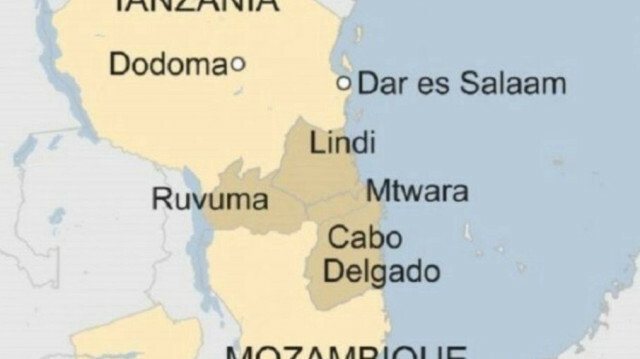
Authorities in 2 eastern African nations team up to launch awareness programs to prevent youth from falling into trap of terror groups
Even as the eastern African countries Tanzania and Mozambique have been carrying out joint military operations against terrorists along their shared border, they have also teamed up to organize deradicalization programs using education and other means to prevent youth from falling into the trap of terror groups.
Authorities in the two countries say the terrorist groups like Daesh/ISS responsible for killing hundreds of people and displacing thousands of others are using religion and the vulnerabilities of youth to radicalize them.
Speaking to Anadolu Agency, Nicodemus Katembo, the acting police chief of the southern Mtwara region in Tanzania, said the initiative launched by both countries in January is aimed at sensitizing the population about the dangers of terrorism.
“The best way to fight terrorism is to empower young people at risk of being brainwashed by terrorists,” he said.
According to the initiative involving government officials and non-governmental organizations, both countries are aiming to target marginalized young people from Mtwara, Lindi, Ruvuma, Cabo Delgado, and Niassa provinces.
“We work closely with our friends in Mozambique to ensure that our young people are sufficiently educated to reject evil,” said Katembo.
Besides military operations, authorities in the two countries have also adopted a softer approach to identify and address factors that persuade young people to join the terrorist ranks.
Alves Mathe, the spokesperson of Mozambique’s Niassa Province Police Command, said the initiative is in line with the country’s new counter-terrorism strategy which has presented major changes in the government approach in fighting terrorism.
“We want to talk to young people about their problems and try to help them to find solutions,” he said.
- Skill programs
Makonde Youth Group (MYG), a local charity group in Tanzania, which is involved in the project, has launched various skill programs to train youth to earn living.
George Ndanda, who is working with the group in the region, said the young people who join terrorist groups are searching for identity and money to address their plight.
“Most young people here feel they’re being excluded by the society because they’re poor," Ndanda said.
The organization brings together youth in the terrorist hit areas in Tanzania and Mozambique and arranges discussions to let them openly talk about issues and then find viable solutions.
“The objective of this course is to infuse moral fiber to young people who are still learning what life is about so that they become responsible citizens,” he said.
Tanzanian President Samia Suluhu Hassan and her Mozambican counterpart Filipe Nyusi met early this month and announced joint plans to fight cross-border terrorism.
Speaking with the Anadolu Agency, some of the young people in Mtwara province said they were approached by radical preachers to join terror groups, but they were rejected.
“What these groups are doing has nothing to do with Islam. I don’t feel attracted to them,” said 19-year-old Hemed.
- Unemployment, identity crises
According to Ndanda, unemployment and social marginalization are key factors affecting young people.
Another youth, Heri Msemwa, said people also get entangled in the net of terrorists to save their lives.
Gladness Kyaruzi, a social psychologist at the Institute of Social Welfare in the Tanzanian port city of Dar es Salaam, said many adolescents lured by extremist groups are prone to risk.
“They are looking for answers to questions about who they are and who they want to be,” she told Anadolu Agency, adding that under the circumstances youth can be attracted to the sense of rebellion offered by extremist groups.
He said young children are at greater risk of radicalization since they experience higher rates of anxiety and depression.
Hello, the comments you share on our site are a valuable resource for other users. Please respect other users and different opinions. Do not use rude, offensive, derogatory, or discriminatory language.
The floor is all yours.








